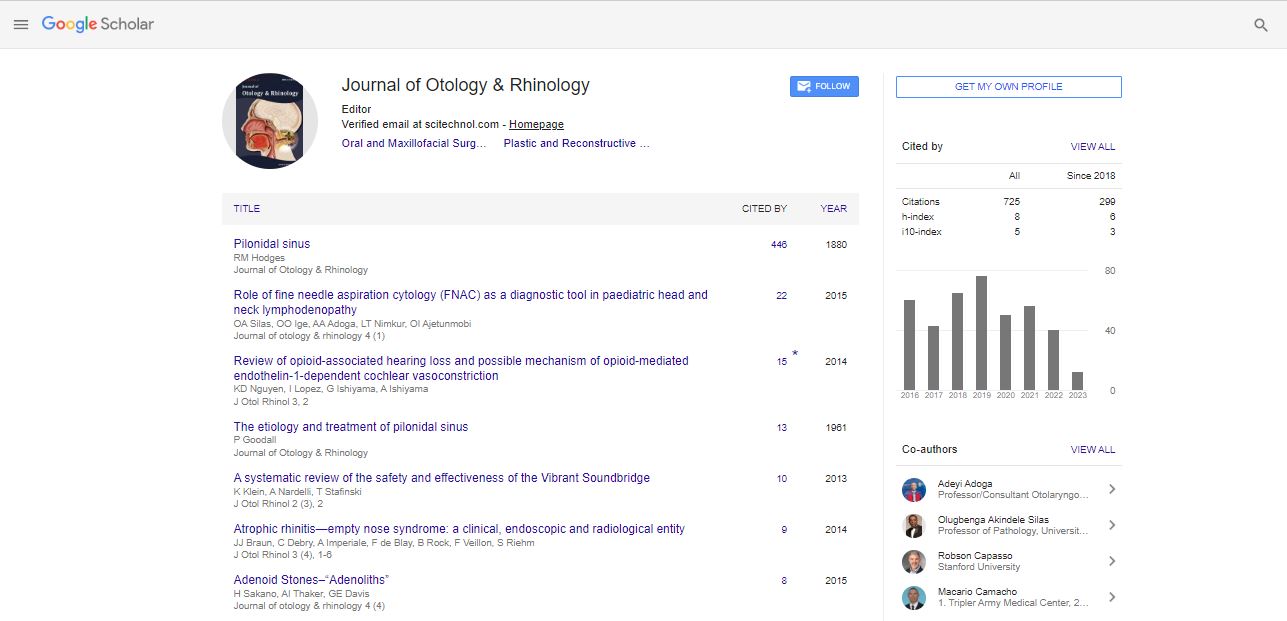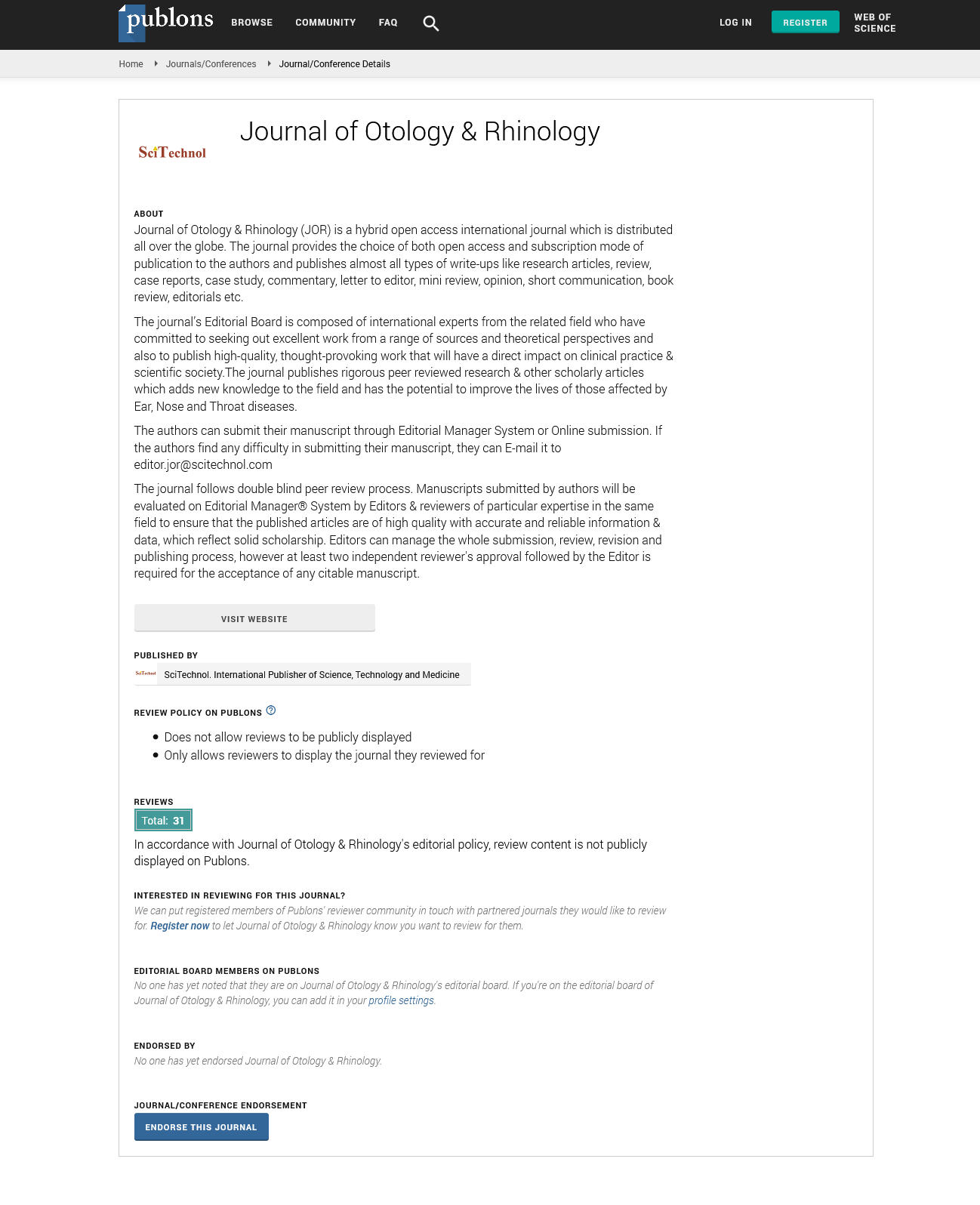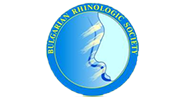Surgical treatment of dizziness and vertigo – evidence, surgical procedures and patient selection
M Westhofen
RWTH Aachen University, Germany
: J Otol Rhinol
Abstract
In case of acute vestibular syndrome or spells of dizziness or vertigo, if non-surgical procedures are not effective or cannot be applied, surgical indications and individual patient selection have to be considered. Therefore, scaling of the complaints and quantitative neurotologic diagnostic is mandatory for well defined indication. Inflammatory diseases and trauma of the lateral skull base are clear surgical indications defined by international guidelines and publications. Surgical indication in diseases with high incidence as Meniere’s disease is discussed controversially. Diagnosis is meanwhile defined by newer guidelines in the majority of the cases. Rare diseases as superior dehiscence syndrome, honeycomb mastoid and non-responding benign paroxysmal positional vertigo have to be treated individually. The surgical indication is based on evidence of lower levels. The control of evidence-based indication, comparison of results and quality control is not easy, because of the high number of surgical techniques and minor variations of the otosurgical procedures. Therefore, an evaluation of surgical treatment results in labyrinth diseases with vestibular function loss is studied. These results are compared with own results in patients with endolymphatic shunt n= 52, cochleosacculotomy and simultaneous ipsilateral cochlear implant (n=15) and capping of the superior semicircular canal (n=14). Conclusion: Diseases with definite diagnosis can be treated with high predictive prognosis, while only probable diagnosis leads to lower efficacy of treatment. Subentities of diseases have to be considered for differentiated treatment indications.
 Spanish
Spanish  Chinese
Chinese  Russian
Russian  German
German  French
French  Japanese
Japanese  Portuguese
Portuguese  Hindi
Hindi 


